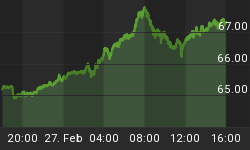Here we mark the years of trend-changing medical discoveries.

The original debt chart is borrowed from quarterly report of Hoisington and Hunt (http://www.hoisingtonmgt.com/pdf/HIM2012Q2NP.pdf) and it only shows US debt. 1873 was the peak of debt-saturated British empire and was followed by global deflationary depression known as long depression (http://en.wikipedia.org/wiki/Long_Depression).

"Eviction" #1767. Irish family evicted at Moyasta, County Clare during Land War, c.1879.
In that period and afterward, Germany and USA grew lot faster, whereas parts of British empire started to become hostile (Ireland, India, South Africa).
Germany eventually became debt saturated and peaked around 1920-1930 Baton of scientific discoveries was passed to USA with mass emigration during the Nazi era. The book Bubble that Broke the World written in 1932 has fascinating depiction of debt mentality in Germany.
"She spent the borrowed money under three heads, namely: One, for housing of all kinds; two, on her industrial machine, to rebuild it, rationalize it, increase its power; and, three, for public works such as parks, baths, civic and recreation centers, schools, stadiums, exposition buildings, new city halls, new post offices, roads, even monuments.
A passion to build possessed them. Under the head of housing they completed in the one year 1930 more than 300,000 habitations. The great weight of new housing was for wage workers, state servants and people of moderate means. Any new housing project in the mass principle is called a settlement. So, workers' settlements, railway employees' settlements, post-office employees' settlements, bachelors' settlements. But settlements also in selected places for the well-to-do. What we should call real estate developments on a very large scale. The aggregate is prodigious. The only way to see it really is from the air because one settlement or one series of flat dwellings may be the size of a town. Moreover, you would have to drive an endless distance to see it from the ground. It is in character extensive and in new places. The cities have not been rebuilt. They have not changed much. These people do not tear down old things to build new ones. For new things new ground. All this change is in the environs. The building passion overflowed necessity, became extravagant, experimental, sportive. New time, new materials, new shapes, new measures, new intentions. Churches all of steel and glass. The modernistic extreme in villas, morgues, hotels, schools, skyscrapers, commercial buildings. It was an architect's festival. Many creditors are scandalized by the signs of Germany's extravagance with borrowed money, the French and the English more than Americans, since they have less understanding of extravagance in principle. The Germans admit it. They may say truthfully that they have been heard to denounce it themselves, to one another. All the same, they went on with it. And then, too, great sums were purposefully spent for the future, as for a new fourth bridge across the Rhine at Cologne, now one of the engineering marvels of Europe.
The French said: "There is no present necessity for this bridge. Why do you build it? You do not pay reparations with a bridge."
The Germans said: "We shall sometime need it, and we build it now to keep our people employed.""















